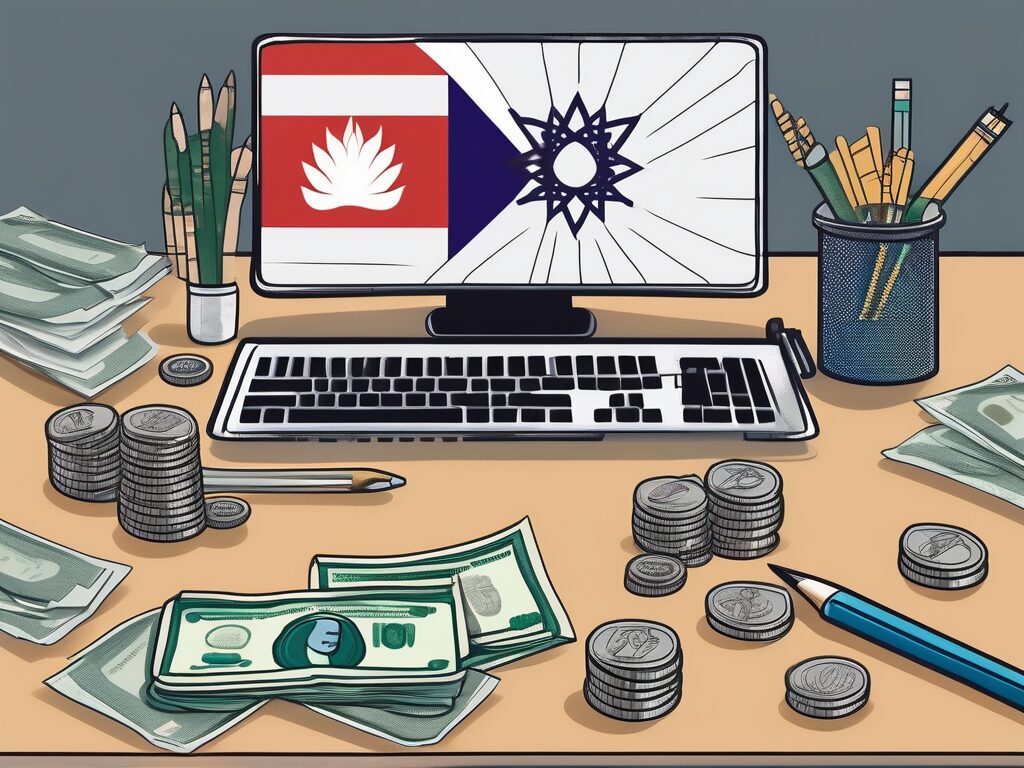Thailand, a country known for its rich cultural heritage, vibrant nightlife, and stunning landscapes, has become a popular destination for international teachers. The allure of living in a tropical paradise while earning a decent income is hard to resist. But how much disposable income can one expect as an international teacher in Thailand? This blog post will delve into the financial aspects of teaching in the Land of Smiles.
Understanding the Concept of Disposable Income
Before we dive into the specifics of disposable income for international teachers in Thailand, it’s important to understand what disposable income actually means. In simple terms, disposable income is the amount of money that an individual has left to spend or save after taxes and other mandatory charges have been deducted from their gross income.
It’s the money you have at your disposal to spend on non-essential items and activities, such as dining out, travelling, or shopping. Essentially, it’s your ‘fun money’ that you can use as you please without affecting your ability to cover your basic living expenses.
Salary of International Teachers in Thailand
The first step in determining disposable income is to look at the gross income. For international teachers in Thailand, salaries can vary widely depending on several factors such as qualifications, experience, and the type of school.
On average, international teachers can expect to earn between 50,000 to 100,000 Thai Baht per month. To put this into perspective, this is roughly equivalent to £1,200 to £2,400 per month. However, it’s worth noting that salaries at the higher end of the scale are typically reserved for teachers with advanced degrees and several years of teaching experience.
Qualifications and Experience
As with any profession, qualifications and experience play a significant role in determining salary. Teachers with a bachelor’s degree in education or a related field, coupled with a teaching certification such as TEFL or TESOL, are likely to command higher salaries. Similarly, teachers with several years of experience under their belt are often able to negotiate better pay packages.
Type of School
The type of school also has a bearing on the salary. International schools, which follow a curriculum similar to that of Western countries, generally offer higher salaries compared to local Thai schools. However, these schools also have higher expectations and may require teachers to have a master’s degree or a teaching license from their home country.
Cost of Living in Thailand
Now that we’ve covered the income aspect, let’s turn our attention to the cost of living in Thailand. The cost of living is a crucial factor in determining disposable income as it dictates how much of your salary will be spent on essential expenses such as rent, food, and utilities.
Thailand, in general, has a lower cost of living compared to many Western countries. However, like any country, the cost of living can vary significantly depending on the location. For instance, living in major cities like Bangkok or tourist hotspots like Phuket can be more expensive compared to smaller towns or rural areas.
Housing
Housing is typically the largest expense for most people. In Thailand, you can find a wide range of housing options to suit different budgets. For example, a one-bedroom apartment in the city centre can cost anywhere between 10,000 to 30,000 Thai Baht per month, which is approximately £240 to £720. On the other hand, apartments in the outskirts of the city or in smaller towns can be significantly cheaper.
Food and Utilities
Food is relatively cheap in Thailand, especially if you enjoy local Thai cuisine. Eating out at local restaurants or street food stalls can cost as little as 30 to 50 Thai Baht per meal, which is roughly £0.70 to £1.20. Utilities, including electricity, water, and internet, can cost around 2,000 to 3,000 Thai Baht per month, or approximately £48 to £72.
Calculating Disposable Income
With a clear understanding of both income and expenses, we can now calculate the disposable income. Let’s take an example of an international teacher earning an average salary of 75,000 Thai Baht per month and living in Bangkok.
After accounting for housing, food, and utilities, the teacher might spend around 40,000 Thai Baht on essential expenses. This leaves them with a disposable income of 35,000 Thai Baht, or approximately £840 per month. This amount can be used for non-essential spending or savings.
Conclusion
While the disposable income for international teachers in Thailand might not seem as high compared to Western standards, it’s important to consider the lower cost of living and the lifestyle that Thailand offers. With careful budgeting and prudent spending, it’s possible to enjoy a comfortable lifestyle while also saving money.
Moreover, the experience of living and working in a different culture, the opportunity to travel around Southeast Asia, and the warm and welcoming nature of the Thai people are priceless benefits that can’t be quantified in monetary terms. So, if you’re considering teaching in Thailand, don’t just look at the numbers. Consider the overall experience and the unique opportunities that this beautiful country has to offer.
Enhance Your Teaching Career in Thailand with IPGCE
As you contemplate the enriching experience of teaching in Thailand, consider elevating your qualifications with IPGCE. Overcome the common barrier of stringent qualification requirements and join the UK’s #1 Teacher Training Course. The International Postgraduate Certificate in Education (iPGCE) is tailored to help you stand out, with a 50% increase in interview callbacks and a 45% boost in promotion rates. Connect with a global network of educators, gain a deeper understanding of international curricula, and enjoy the flexibility of online study to balance your professional development with your teaching commitments. Don’t let inadequate credentials hold you back. Join the iPGCE program and unlock the full potential of your international teaching career in Thailand.

